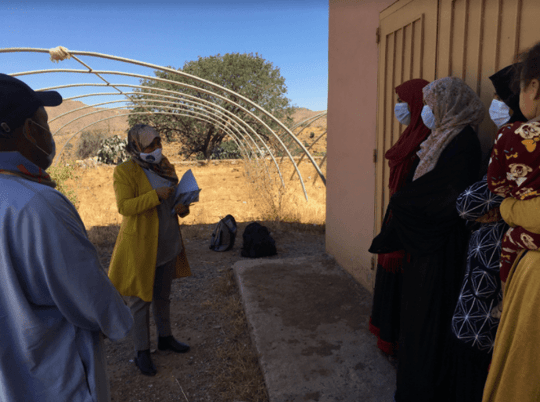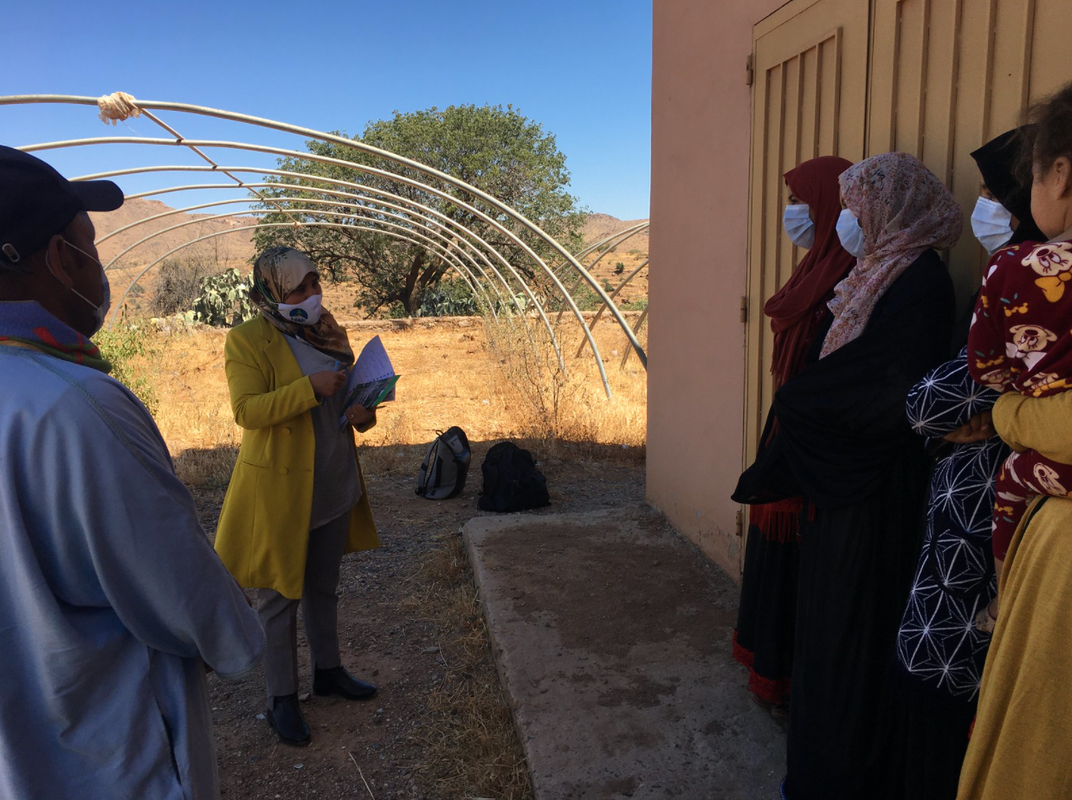Sharing Data to Achieve the Sustainable Development Goals

Samirah Jaigirdar

HAF Director of Projects Amina El Hajjami discusses goals and assesses needs with cooperative members in Tisfan, Taroudant province.
In 2015, world leaders met in a landmark conference of the UN to craft concrete goals to end poverty, stop environmental destruction and boost well-being. These pledges transformed into the Sustainable Development Goals (SDGs), a package of 17 goals for ending hunger, eliminating extreme poverty, reducing inequality, tackling climate change and stopping the loss of biodiversity and ecosystems — all by 2030. With less than a decade to go, the world is far from reaching these admirable goals. Unfortunately, the coronavirus pandemic has slowed progress even further by reversing human progress, pushing millions back into extreme poverty and deepening inequalities.
Since the SDGs were announced, the UN has hosted the annual High-Level Political Forum, the central platform for follow-up and review of the 2030 Agenda for Sustainable Development and the SDGs. Alongside receiving reports from all member states and related civil society organizations, the HLPF also hosts a number of side events. On July 12, 2021, I attended one of these events, which formulated discussion around how to get the SDGs back on track post-pandemic.
The message from the event was clear: the pandemic is not a reason why the SDGs should take a back seat in any country’s development agenda. While countries face significant challenges both economically and politically due to COVID-19, their response will decide how we can achieve the SDGs and tackle a graver problem than COVID-19: climate change. The panelists included representatives from the Governments of Italy and Aruba, the European Commission, the UN Environment Programme, the European Confederation of Relief and Development NGOs, and the African Peer Review Mechanism. They highlighted the importance of timely and quality data, which is critical to understand and manage the effects of the pandemic and to design policies that prioritise SDG advancement. They called for investment in data collection systems and technical and financial support for national statistical offices.
Non-government organizations (NGOs) such as the High Atlas Foundation (HAF) in Morocco are in a position to encourage data sharing amongst key stakeholders. Generally, NGOs keep records of how their projects are faring with numerous evaluations and audits as they must present data to donors. They and other civil society organizations have furthered SDG goals in the communities they work in admirably. Therefore, they should be used as examples for their countries’ governments to learn how to work towards SDGs even if the pandemic has limited their financial resources.
SDGs should not be taking a backseat even though COVID-19 is still wreaking havoc on the world’s countries and economies. The past year illustrates how sustainable practices can make a difference and potentially limit the devastating effects of a future pandemic.
Samirah Jaigirdar is a student at Connecticut College and an intern with the High Atlas Foundation.